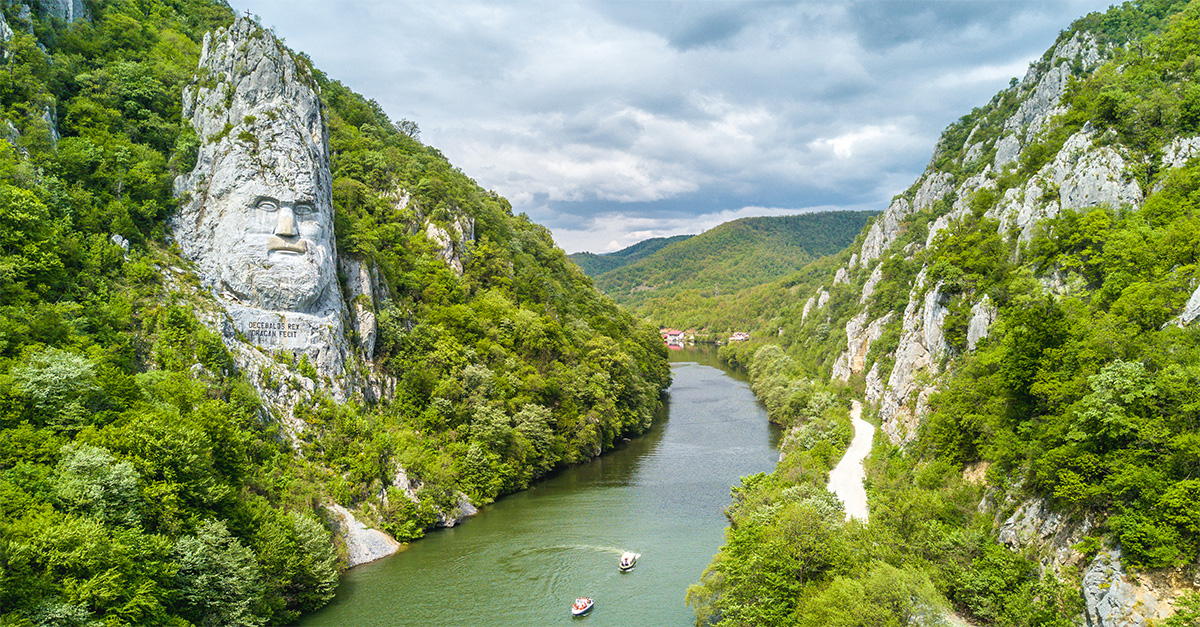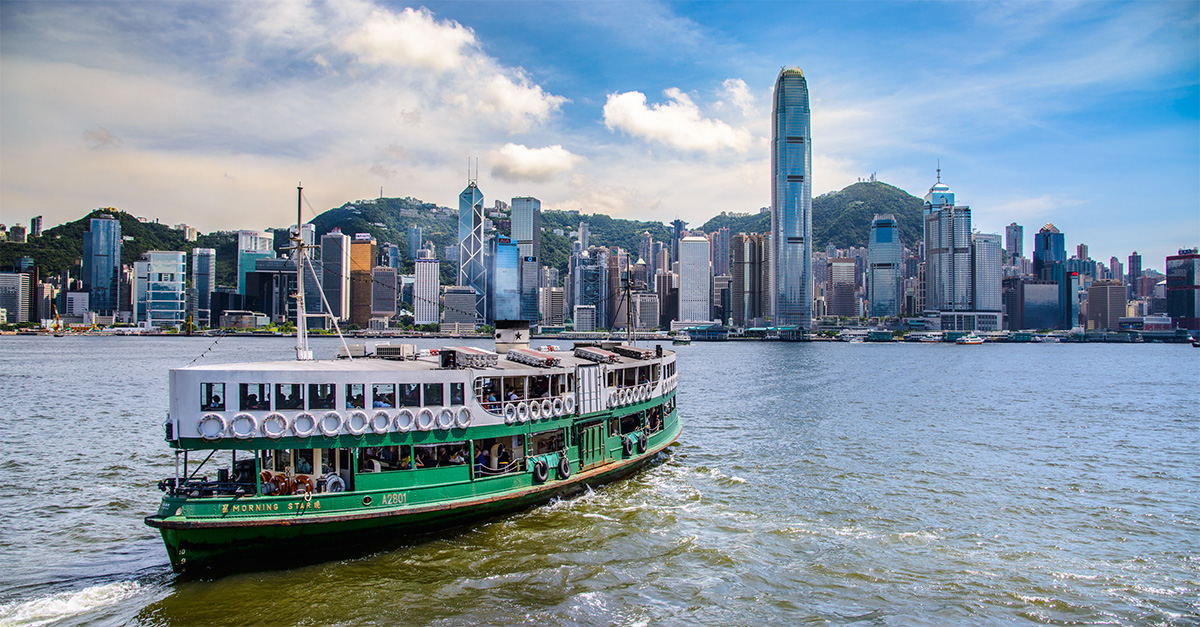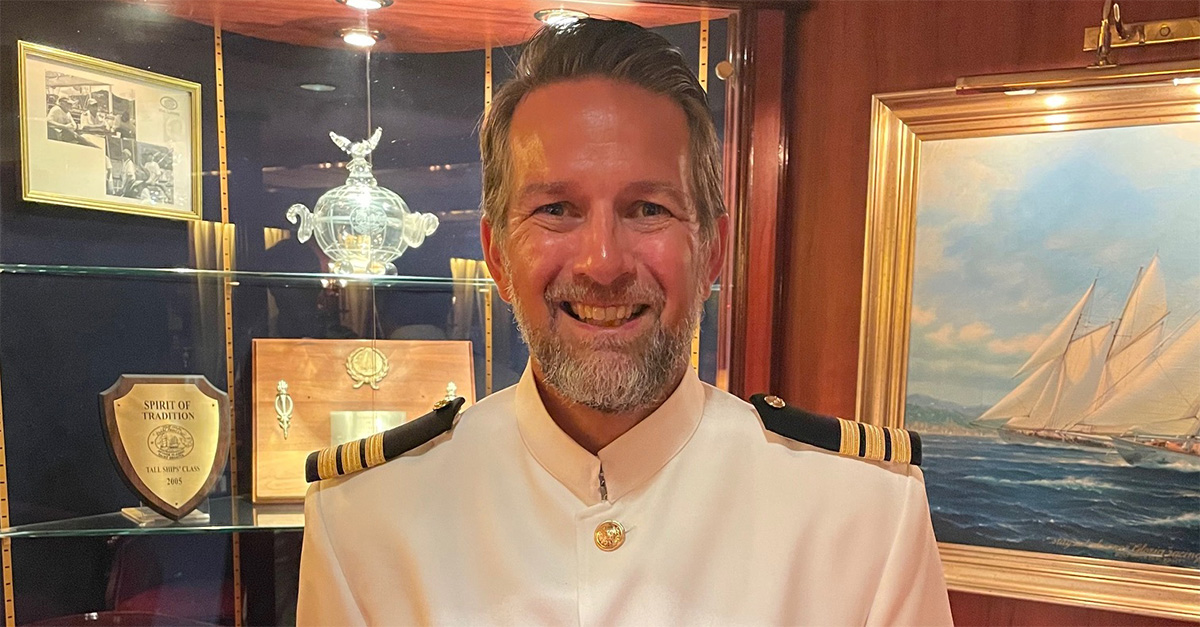What are cruise lines doing to protect the places they visit? Three marine conservation experts weigh in
Click here to download and save as a PDF
Fred Oslen Cruise Lines
Steve Jones, head of partnerships at Orca
Steve manages trade partnerships at marine conservation charity Orca, which aims to protect whales and dolphins in European waters. He runs the Orca Cruise Conservationist programme, working with the likes of Fred Olsen Cruise Lines to place conservationists on ships while collecting scientific data.

Q. What is the goal of Orca and why is it important?
A. Orca studies whales and dolphins using ‘platforms of opportunity’ – cruise ships, ferries and other vessels that give us the chance to collect data about these wonderful animals and identify important hotspots.
Sadly, whales and dolphins today face a wider array of threats than they have at any other point in history, and so understanding their habitats is essential to protecting them for future generations.
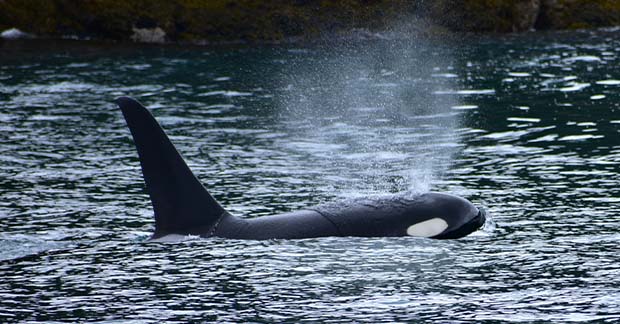
Q. What does Orca’s partnership with Fred Olsen involve and how did it come about?
A. We began working with Fred Olsen in 2019 after one of our volunteers was travelling on a Fred Olsen ship and started talking to guests about the whales and dolphins they were seeing. We spoke about a wider partnership and have since been working hard to plan programmes, including several on the line’s Welcome Back cruises.
Our conservationists deliver lectures and workshops and spend time on deck, helping guests spot whales and dolphins, while recording scientific data.
Q. Do you believe the growth in expedition cruising is good or bad for these environments and their wildlife?
A. We’ve seen a huge appetite within the industry to help protect the ocean, and our partners are always looking for ways to help do their bit. We absolutely believe that those who live and work at sea are the most passionate about protecting it, and we see that every day with the work we do.
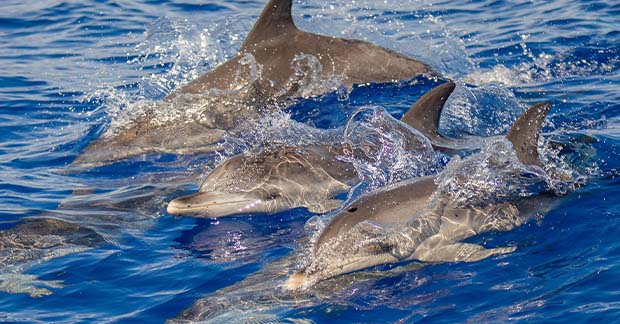
Hurtigruten
Verena Meraldi, chief scientist
Verena started working for Hurtigruten as a lecturer in 2007. She became chief scientist in 2018, working to develop the line’s Science Program, planning onboard activities and lectures, collecting data and supporting citizen science projects.

Q. What does Hurtigruten’s Science Program involve?
A. We’ve committed to dedicating one cabin on every departure to our Science Program, and we plan to always have a collaborating scientist on board to talk about their work. The lectures are informative and travellers can try hands-on activities in the Science Center.
Collecting data through citizen science projects offers a deeper understanding of the difficulties scientists face undertaking field trips in remote areas.
Q. How can expedition cruise ships be a benefit to conservation research?
A. In the past, to reach remote areas and perform their research in situ, scientists had to book one of the limited and extremely expensive places on a fully equipped research vessel. Now, with the development of new and portable research tools and technologies, scientists can look for alternative platforms to perform their work, and expedition cruise ships are ideal for this.
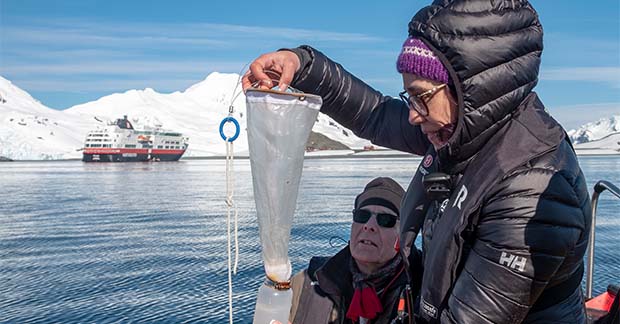
Q. What is it about these ships that make them a good research platform?
A. We operate in remote areas on a yearly basis for long periods of time, allowing scientists to collect data that can not only be replicated throughout the duration of the season, but also from year to year. This kind of data is essential in the development of conservation programmes.
Q. What are the biggest issues affecting marine conservation?
A. I believe the biggest ocean conservation issue is climate change – we do not fully understand the impact it’s having on the oceans, although we have a very good idea. Changes in the ocean are very slow but extremely long-lasting. The effects of warmer oceans, such as acidification, toxic algae and coral reef bleaching, are just the tip of the iceberg.
In order to protect the human population and have a planet to live on, we need healthy oceans and we should put our efforts into achieving this.
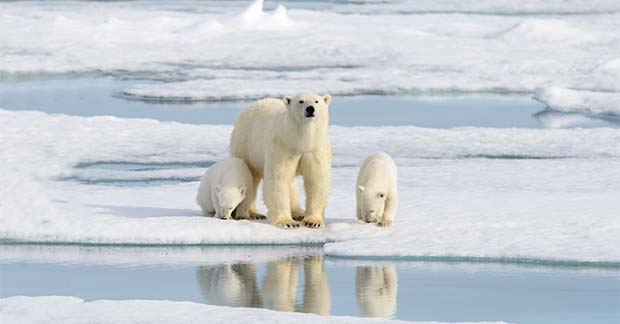
Aurora Expeditions
Jo Ruxton, ocean conservation ambassador
Jo is a film-maker, plastic pollution campaigner and the founder of NGO Ocean Generation, which aims to free the ocean of human threats within a generation. She worked with the BBC for 12 years, helping to produce documentaries including the Blue Planet series, and was hailed by Sir David Attenborough as a leading voice for the plastic-free movement.

Q. How did you get into marine conservation?
A. The ocean has always fascinated me. I learnt to snorkel as a child when we lived in Singapore and began diving in the 1980s, and a whole new world opened up to me. When I lived in Hong Kong, I was invited to join WWF Hong Kong to start its marine programme, which was an incredible opportunity.
Q. You are Aurora Expeditions’ first ocean conservation ambassador – how have you worked with the team to shape the onboard experience?
A. I’d been involved in previous sailings so we discussed my experience, how I interacted with guests and how to make the most of having me on board.
It has also been a fantastic opportunity for me to learn about the ship, including how it is fitted out to facilitate citizen science projects to support marine research, and how it will operate in terms of the environment and wildlife it introduces guests to.
Q. What do you think of the move to honour female scientists and conservationists by naming the decks on new ship Sylvia Earle after them?
A. I think it’s a great start – women have led the way with conservation. At the WWF in Asia and the BBC Natural History Unit, where I’ve worked, most of the people involved with wildlife and its protection were female. That shouldn’t be the case, but I think it will continue to be as long as we value the economy over the future of the planet, our ocean and our own health.
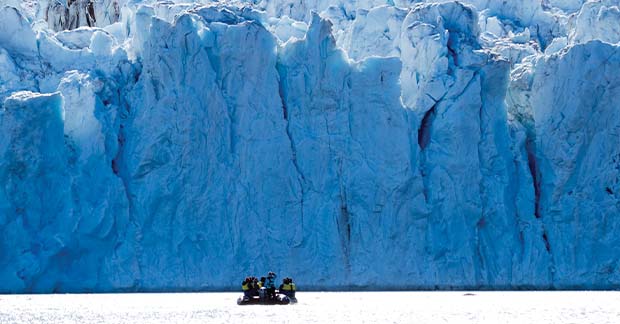
Q. What achievement are you proudest of during your career?
A. I think it must be my work around plastic waste in the ocean. When I began in 2009, the subject was new to most people.
Making the documentary film A Plastic Ocean was the hardest thing I have ever undertaken, but seeing the release of the film and learning it made the number-one position for a Netflix documentary was wonderful.
More importantly, it showed just how much people wanted to know about environmental issues.
Q. You were involved in Blue Planet – what was that like?
A. Sir David narrated the series but it wasn’t until the very end that I had a chance to meet him, five years after we started working on it. That felt like the pinnacle of my career. His enthusiasm for the work is the same as somebody witnessing these wildlife spectacles for the first time, and it never wanes.
Q. What’s the next big focus for you in terms of ocean conservation?
A. At Ocean Generation, we will continue to work in the area of plastic pollution as well as other ocean conservation issues. We are not anti-plastic, as it has a place in our lives, but we are looking at a ‘Plastic Intelligent’ way forward.
Ultimately, we see a world where the ocean is freed from human threats – within a generation. It’s a critical time: we are the first generation to understand ocean issues, but we are the last generation that can stop them.
Verena’s top tip
“Agents selling conservation expedition cruises should ensure the trips are really conservation-focused, with an educational programme that contributes to the area, not just sightseeing. All voyages should have a sense of purpose and be part of the solution, not part of the problem.”
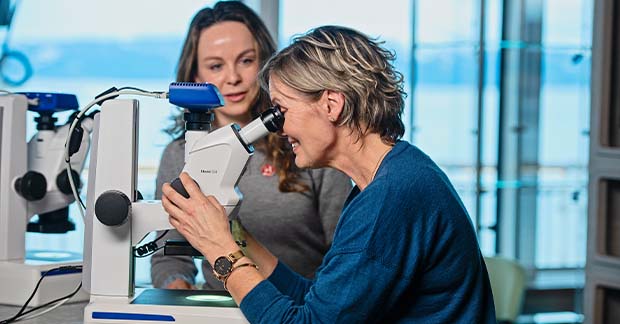
Book it:
Fred Olsen Cruise Lines’ 17-night Whales & Volcanoes of Iceland & The Azores cruise with Orca conservationists on board starts at £2,499 per person, departing Liverpool on April 19, 2022, on new ship Borealis.
fredolsencruises.com
Hurtigruten has a 13-day voyage from Machu Picchu to the Galápagos Islands, featuring its Science Program from £9,395 per person for a 2022 departure, including flights.
hurtigruten.co.uk
Aurora Expeditions offers a 12-day Svalbard Odyssey voyage from £7,735 per person, based on two sharing an Aurora Stateroom cabin and departing June 20, 2022.
auroraexpeditions.co.uk
PICTURES: Alexey Sedov; Al Bakker; Richard Lovelock; Agurtxane Concellon; Hurtigruten Expeditions/Andrea Klaussner; Michael Baynes; Himanshu Saraf.
Read more
A look inside the world’s most expensive Christmas cruise
Top five things to do in Porto
Wildlife-spotting on a river safari in Southern Africa

